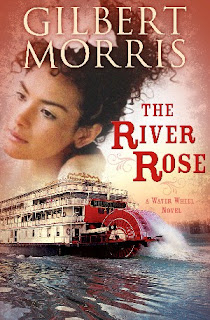My husband and I dropped into a coffee shop and while he read the newspaper, I overheard a conversation going on next to us. I didn’t mean to eavesdrop. The voice of one of the three carried across the room. Here is what I took away from this free research moment:
Category Archives: Christian fiction
The Montage–a way to show the passage of time
Transitions
When I started writing fiction, I had a hard time getting my characters from one place to another. This is what I wrote:
Why Use Symbols in Your Writing
Have you considered adding a symbol in your novel? Some of the best novelists (and nonfiction book authors) use them to add depth to their stories and to their characters. What exactly am I talking about? A symbol can be a living thing like a butterfly, eagle, or an old oak tree. Or it can be an inanimate object like a family home, a seashell, or a precious stone. Throughout the story the object takes on a meaning larger than itself. It adds layers of emotional meaning that otherwise you’d have to explain. And it can be useful in showing depths of a character’s personality.
Ten Ways to Begin Your Novel
Marketing Advice for Authors
Help Your Friend Become a Best Selling Author
My friend Kate Lloyd has a book coming out soon, Pennsylvania Patchwork. She’s an amazing writer and I want to help promote her novel. I’m a busy writer, editor, volunteer, and grandmother. I can’t do everything I want to do, but here are 7 things I can do in the limited time I have:
1. Buy her book. I can pre-order her book through Amazon.com or Christianbooks.com, or both. Publishers notice how many people are preordering a book and this helps the author. And by buying her book new, she gets a royalty.
2. Buy her book as a gift. I already know of friends and relatives who will enjoy Kate’s novel. I plan to buy it for them as either a birthday or Christmas gift. I’ll have Kate sign her book, which makes my gift even more special.
3. Face her book out at bookstores. Whenever I stop in at my local Christian book store or Barnes & Noble, I check to see if her book (and other friends’ books) is on the shelf. Then I face her cover out, helping the next shopper notice her novel.
4. Order her book. If I can’t find her book, I ask the employees where it is. This draws their attention to her name, and title. If they don’t have it on the shelf, I will ask them to order it. I’ll also inform them she’s a local author. I’ll tell them how much I loved her last book, Leaving Lancaster, and tell them how much I’m looking forward to reading her new book. Bookstore employees can’t know all the books they carry, and this will help them find a new author they will appreciate recommending to other readers.
5. Review it. After I’ve read the book, I will leave a review on Amazon.com, BN.com, Goodreads.com, and Christianboods.com. I will be fair and honest. Five star reviews sell books. Someone said I should also “Like” her books on Amazon.com. This will help with linking her book to others similar to it. This helps other readers find her Amish fiction.
7. Talk about her book on Facebook. When Kate’s book comes out, I’ll mention it on my Facebook page. I’ll link to her Website and also to places where people can buy it. Pictures help sell, and so I’ll make sure I have the cover in my picture file. If she does giveaways, I’ll pass the word along to my friends.
None of these things take a lot of time, but they will help my friend sell her book. You can do the same for your friends and in return when your book is published they might do the same for you. Maybe you have ideas of your own. What would you add to my list? Please comment below.
The River Rose by Gilbert Morse
However, as plans are made, news comes of another heir to the Helena Rose – a tough man named Clint Hardin — and a clause in the will that says claimants of the estate must live aboard the boat. Jeanne, a Christian woman, makes it clear she won’t stay with a man who is not her husband. But both are desperate for work, so they agree to keep their distance as Clint occupies the lower deck and Jeanne takes the captain’s quarters.
Q & A with Gilbert Morris
I received a complimentary copy of this book for review from B&H Publishing Group. I was not required to write a positive review. The opinions I have expressed are my own. I am disclosing this in accordance with the Federal Trade Commission’s 16 CFR, Part 255.
Publicity Tips from Author Lynnette Bonner
Do you remember the song from Finding Nemo that Dory-the-crazy-blue-fish kept singing?
Just keep swimming,
just keep swimming,
just keep swimming…
Yeah, publicity is a lot like that. You just need to keep at it.
Sometimes you will feel like you are the only fish swimming upstream, while everyone else is swimming down, but you just need to keep swimming. Keep pressing on. Keep putting yourself out there – but make sure you are swimming in the right direction.
I realize that many of you may still be in the stages of looking for a publisher or agent. I want you to stop and remember that everything we do, whether we are thinking about it or not, is publicity. For the good or for the bad. (To keep with my analogy, all us little fishies are constantly swimming, whether we are going in the right direction or not.)
The Internet is a vast place, but with the ability of search, it shrinks right down to small-town-barber-shop size. BE CAREFUL WHAT YOU SAY ON THE NET. (And at writers conferences, and to agents and publishers you may talk to. Because if the Internet is barber-shop size, the writing world is even smaller. And agents and publishers do talk to each other.)
I read several agents and publishers blogs and I can’t tell you the number of stories I’ve heard about an agent or publisher being interested in an author until they went on a Google hunt and started discovering some things the author had said.
Put yourself in an agent’s shoes for a moment. Let’s say they get two promising queries. Query A is from Suzy Sweetwater. She always has nice things to say on her blog about the industry, agents, and all things publishing. Query B is from George Grumpypants, who is constantly griping and complaining on his blog. Which person do you think the agent is going to request more information from? Of course it is Suzy Sweetwater because the agent doesn’t want to risk the fact that they might be a subject of one of Mr. Grumpypants’ tirades in the future. Not to mention that any future publishers will probably also check him out and the bad attitude might prevent them from offering a contract, which will keep the agent from getting paid.
Now this doesn’t mean that you have to say nice things about something that just drives you crazy. But the old adage “sometimes it’s better not to say anything at all” will serve you well. And if you just HAVE to say something, make sure that you say it in a respectful, thought-out way, or it just might come back to haunt you.
These principles apply whether you are brand new to the industry, or have just signed your 20th contract.
Lynnette Bonner has a brand new release, High Desert Haven, a Christian historical romance. She would be happy to give away one electronic copy of the book to a commenter on this blog post. The drawing will be held Monday, April 16th. To enter the drawing just leave a comment about one policy you have for being careful on the internet.
Below is the back cover copy from the book.
Is Jason Jordan really who he says he is?
Everything in Nicki’s life depends on the answer.
Nicki Trent is left with a toddler and a rundown ranch when her husband dies in a mysterious riding accident. Determined to bring her ranch back from the brink, Nicki hires handsome Jason Jordan as a manager. But when her neighbor, William, presses for her hand in marriage, the bank calls in a loan she didn’t even know about, and bullets start flying, Nicki questions whether this ranch is worth all the trouble.
To make matters worse, terrible things keep happening to her neighbors. When Jason is blamed, Nicki wonders how well she knows her new hand…and her own heart.
Two yearning hearts. Powerful enemies. Surprising love.
Set in the adventure and danger of the Wild West.
Character Chart
There are numerous ways to create a believable, unique character. One is to fill out a character chart. By the time you have answered all of the questions below, you will know more about the key players in your novel than you know about your friends. This chart should also help trigger some plot points.
Character Chart
Name of your character (first, last, and middle):
Meaning of name. Reason parents named character. Nickname? As a child or adult? How do they feel about that nickname and how did they acquire it?
Age: Height: Weight: Race/ethnicity:
Hair color: Eye color: Skin tone:
Physical illnesses or afflictions:
Any scars or birthmarks? How did he/she get the scar?
Way of dressing/style/favorite outfit:
How does he/she feel about their face and body?
Characteristic gestures:
Speaking style (talkative, taciturn, soft, loud, formal, etc.):
Where were they born? In what city? Specific details, if important.
Where do they live now? Why?
Describe their living space (neat, cluttered, sparse, etc.)
Education: Level of school finished. How did they fit in at school? Favorite teacher. Favorite memory. Most embarrassing moment. Friends. Enemies.
Occupation(s): How does he/she feel about job? Have he/she lived up to parents’ expectations?
Income: earned? Inherited?
What is character’s skills/abilities/talents/expertise?
Marital Status: Married? How long? Happily? Living with someone? Who? Single? Children? Status of marriage. Spell out relationships.
If children, spell out names, ages, etc.
Parents: Write out a paragraph about relationship with parents.
Siblings: How many, relationship with each.
List any other important relative and influence on character such as grandparents, aunt, uncle.
List childhood traumas, moments that shaped character: arrests, rejections, failures.
Describe greatest fault: anger, unwillingness to confront, etc.
Describe greatest strength: ability to keep a secret, loyal, trustworthy, etc.
What does he/she do for entertainment?
What kind of food/drink does he/she like?
Physical activities?
Does he/she have any pets? As a child?
Introvert/extrovert?
Any quirks? Admirable traits? Negative traits? Bad habits or vices?
How about prejudices or pet peeves?
What embarrasses your character?
Greatest fear?
Religious beliefs. Write out his/her testimony.
Opinions on politics, environment, crime, gun control etc.?
What is your character’s biggest dream?
Long term goals/short term goals.
What major problem does he/she have to solve or overcome?
What character growth will there be by the end of the story?
What lessons will your character have learned?
How will his/her life change by the end of the story?




